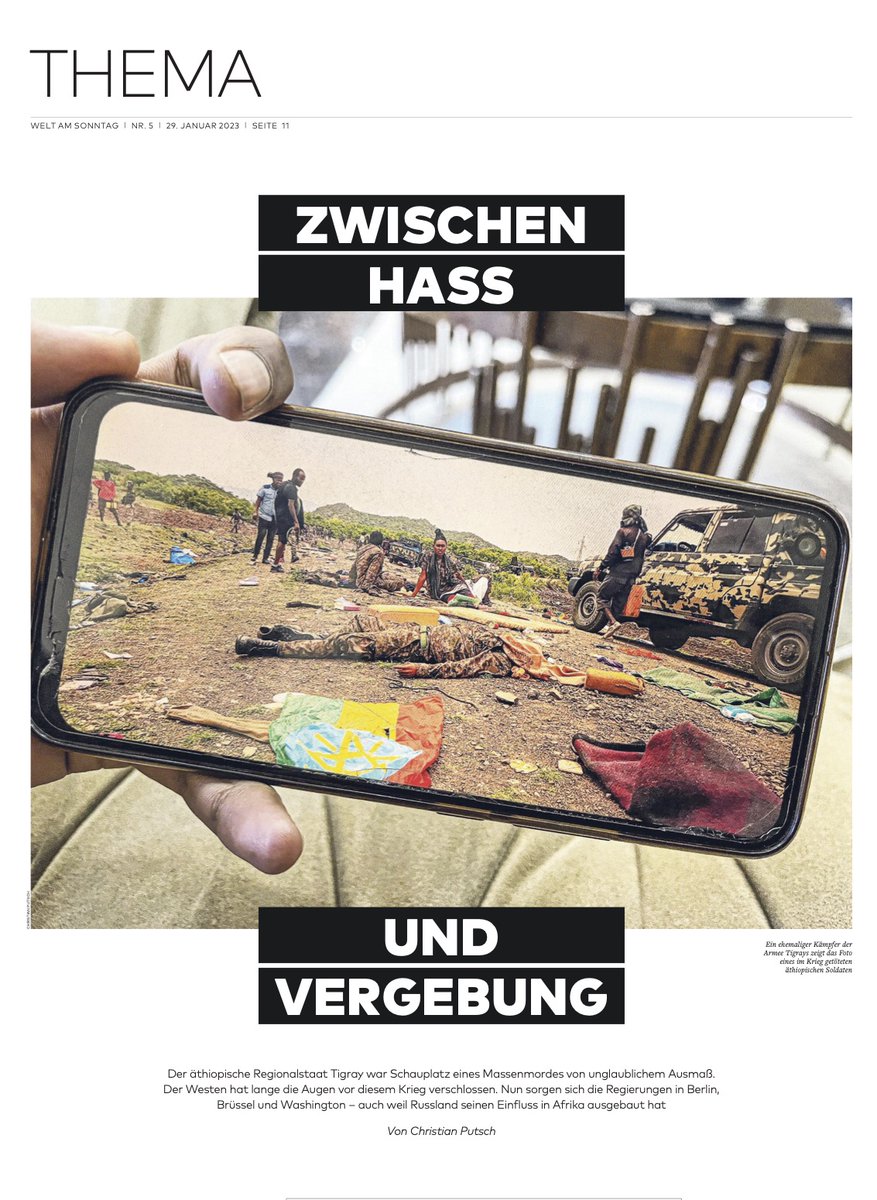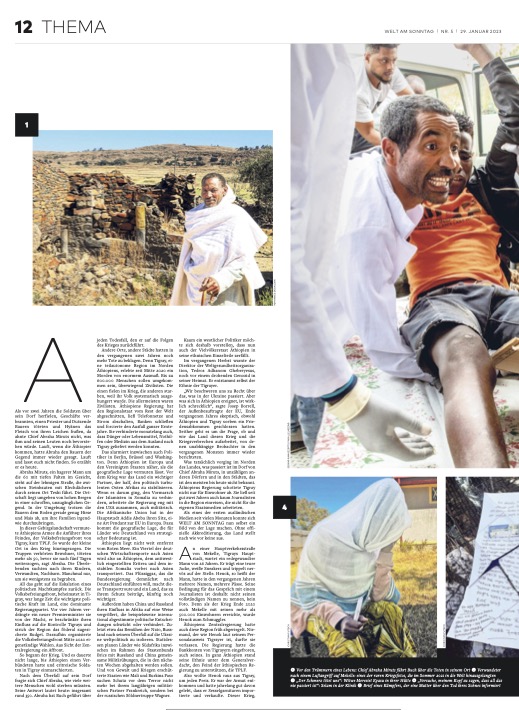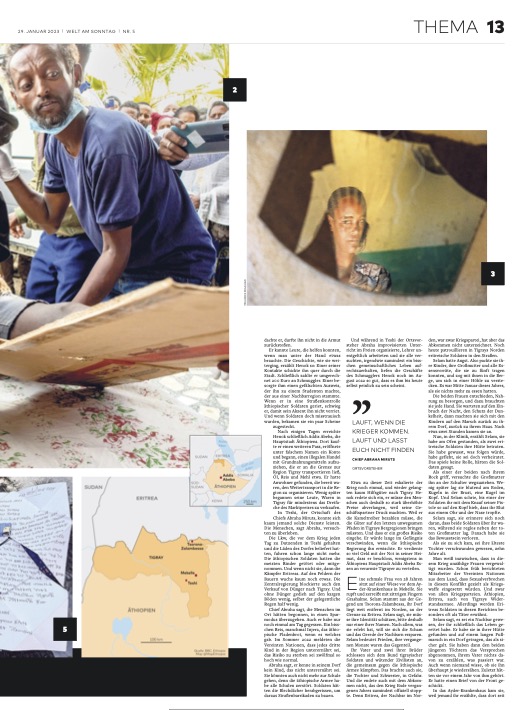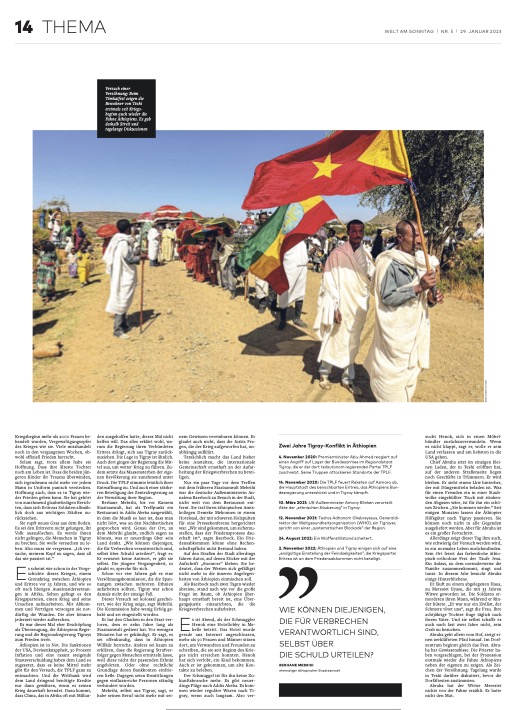
Some thoughts on my @welt research in the Ethiopian Tigray region, until recently the scene of one of the cruelest wars of our time with a death toll of 600,000, according to estimates. The conflict received embarrassingly little attention from the international community 1/12 







The November peace agreement between Ethiopia and the Tigrayan People's Liberation Front (TPLF) has improved the situation, but it is nowhere near a „normalization" that the Ethiopian government is talking about. I have never seen so many people cry 2/12
Eritrea must completely withdraw from Tigray, otherwise there can be no lasting peace. I interviewed the young mother Selam, who was raped by Eritrean soldiers in early January, just a few weeks ago. Like so many other women after the peace agreement 3/12
Only in the past few days have Eritrea's troops left some cities in northern Tigray. Ethiopia's Prime Minister Abiy must ensure that his key wartime ally, Eritrea's army, completely withdraws if his promises of peace are to be taken seriously
4/12
4/12
In rural areas in particular, not enough aid is arriving. I was in a village that was largely destroyed in the war. There, 60 km south of Mekelle, many children are still malnourished and schools remain closed. For 3 years now 5/12
The roads to Tigray urgently need to be opened to passenger traffic. The few flights to Addis are not enough, especially since Ethiopian authorities, who control Mekelle Airport, do block many passengers from boarding 6/12
Peace will depend on transitional justice. Ethiopia regards this as an internal matter. "How can those responsible for crimes judge their own guilt?" a former Ethiopian prosecutor told me 7/12
Ethiopia has by no means allowed enough observers of the peace process to come to Tigray. This applies to journalists too. Except for state media, there have not been any media accreditations so far, my visit was only possible through informal channels 8/12
I have seen a lot of anger, such as a mid-ranked fighter from the Tigray Defense Forces (TDF) who opposed the TDF disarmament and hoped that not all heavy weapons were surrendered. He explained this with the Eritrean soldiers in Tigray and the unresolved Western Tigray issue 9/12
Human rights organizations accuse all warring parties of human rights crimes. The TDF also inflicted enormous suffering on the civilian population during advances into the neighboring regions of Amhara and Afar, I got an idea of this in May 2022: welt.de/politik/auslan… 10/12
There were fragile moments of hope in Tigray. In the village that was destroyed 2 years ago, they showed the Ethiopian flag for the first time again next to the Tigray flag at the Timkat ceremony. The elders wanted a sign of reconciliation. Many residents were against it 11/12
The research will be published this weekend in WELT AM SONNTAG. Many thanks to @MarcNeller and the team of the foreign desk for the editorial support #weltamsonntag #tigray #tigray 12/12
• • •
Missing some Tweet in this thread? You can try to
force a refresh








